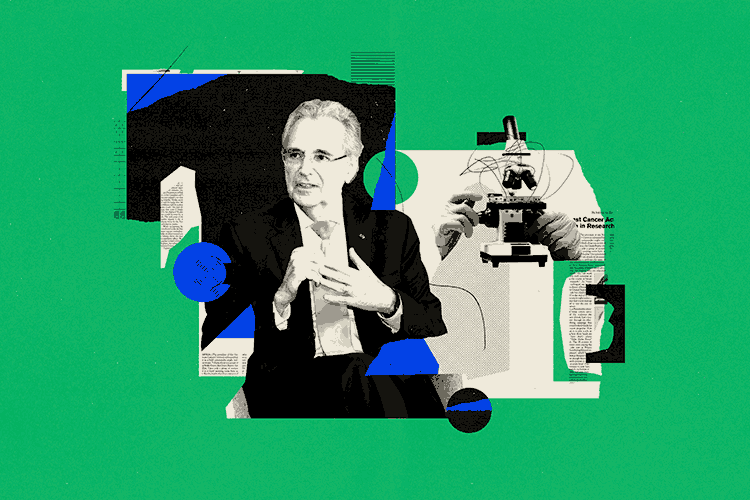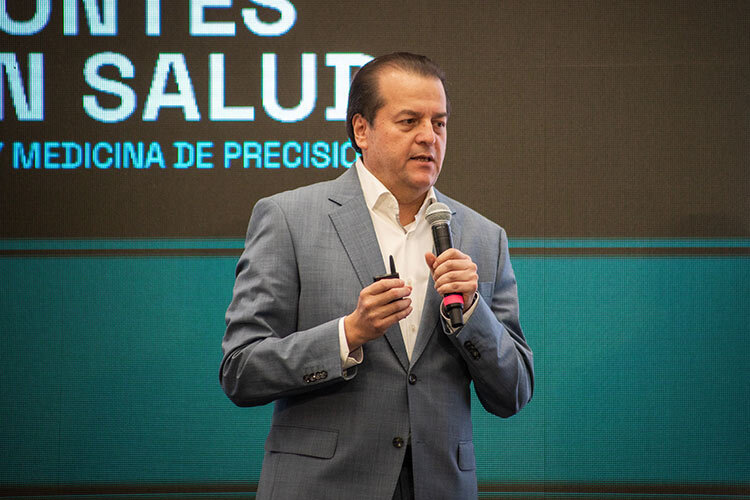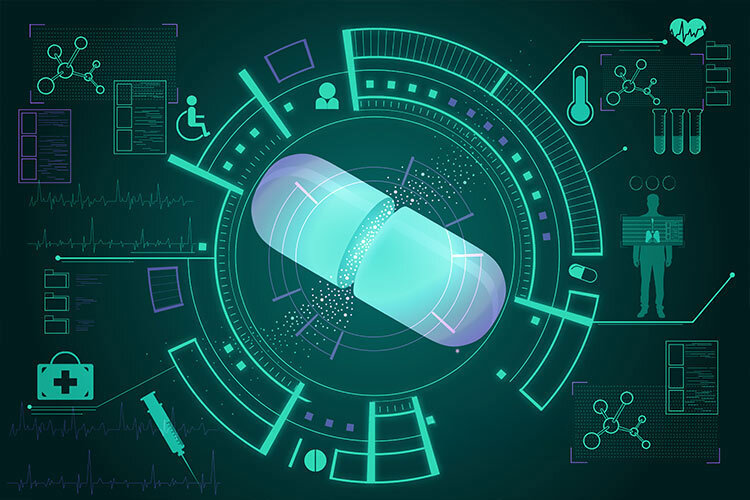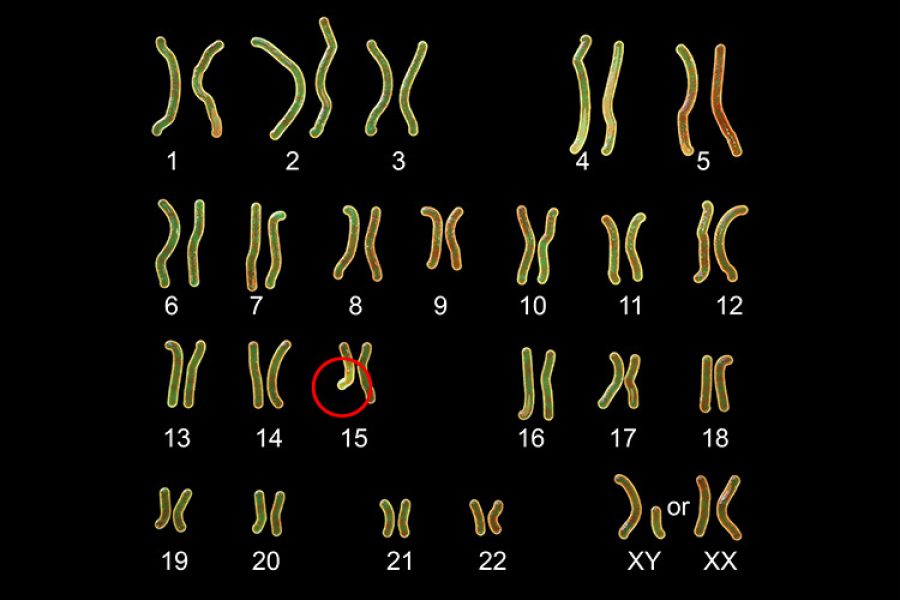Ronald DePinho’s life mission is to fight cancer through scientific research. At the panel Giants of Medicine, held on May 16, 2023, and organized by TecSalud, DePinho spoke about his greatest achievements with Guillermo Torre, TecSalud Dean and Vice President for Research at Tecnológico de Monterrey.
DePinho is a research physician and former University of Texas MD Anderson Cancer Center president. Even though his parents were low-income Portuguese immigrants living in New York, with their support he achieved levels of success he never imagined. “Every chapter was one that I did not anticipate,” he said.
For his tireless work in cancer, he has received multiple awards and distinctions such as the American Association for Cancer Research (AACR) Clowes Memorial Award, the Ellis Island Medal of Honor, and Commander of the Order of Santiago of the Sword, Portugal.
Ronald DePinho, a giant is born
His passion for science began when in high school he dissected a frog and became fascinated. He wanted to understand the complexity of a living body. “I was instantly addicted to biology,” he said.
Although his first love was research, he also wanted to be in contact with people and have that “very special bond that physicians or healthcare providers have with their patients,” he recalled.
With this in mind, he studied biology at Fordham University, New York, from where he graduated with honors. He then earned a Master’s degree in microbiology and immunology from the Albert Einstein College of Medicine.
After graduating, he took a break to become a physician and complete his internal medicine internship and residency at the Columbia- Presbyterian Medical Center. Taking care of patients, he realized that what interested him most was understanding what causes diseases, not just how to treat them.
Then, he decided to continue with a postdoc at the Albert Einstein School of Medicine. There arose the question that would guide the rest of his career: why does aging cause cancer?
“We were very interested in trying to understand and answer this basic question because it’s the most important driver for cancer,” he said.
Cancer and aging
In the Department of Microbiology and Immunology at the Albert Einstein College of Medicine, DePinho focused on studying telomeres and their relationship to cancer and aging.
Telomeres are the ends of chromosomes, which in turn are the structures in which our DNA is organized within cells. Their function is to give stability to chromosomes and it has been observed that as the species get older they become shorter, which causes damage to the cells and leads to their death.
In collaboration with Carol Greider, who won the 2009 Nobel Prize in Medicine, and two other researchers, he created the first telomerase knockout mouse. Knockout mice are genetically modified so a specific gene or section of DNA can be removed in order to see what happens if the gene or sector isn’t there.
These mice allowed DePinho and his colleagues to deepen their understanding of the relationship of telomere dysfunction to cancer and aging. What was learned was also useful to understand other degenerative diseases, such as fibrosis.
As his interest in cancer grew, he made the decision to move to Boston to found his laboratory at Harvard University. There, his main goal was to improve the precision of cancer drug development. “Using science to identify [genetic] targets [of cancer] and drugs against those targets,” he said.
In Boston, he founded the Belfer Institute for Applied Cancer Sciences where he spent 14 years before becoming president of the University of Texas MD Anderson Cancer Center. Back in Texas, one of his greatest achievements was founding the Moon Shots Program, which focused on accelerating the application of the knowledge acquired in effective treatments to cure many types of cancer.
The future in the fight against cancer
According to DePinho, the future of the fight against cancer will be focused on seeking therapies that target regulatory mechanisms beyond T cells, a type of white blood cell that is affected in the development of the disease and cannot destroy cancer cells.
“The next 10 to 20 years are going to be the golden era of cancer therapy,” he said. “This is an exciting time because we now have the technology to be able to make a decisive assault on cancer.”
In addition, he emphasized that, in order to really defeat it, it is essential to focus many efforts on prevention and early detection of cancer, since up to 50% of types can be prevented.
To medical students looking to pursue research and get as far as he did, he advised: “If you want to be great, work hard and treat others with respect, if you do that, you’ll not only be successful, you’ll even be a leader”.
Also, he recalled the importance of spending time in research laboratories during their formation and finding mentors, to know if research is really what interests them, in addition to teaming up. “All the things that I accomplished were because I had amazing people in my lab who believed in the science we were doing.”


















